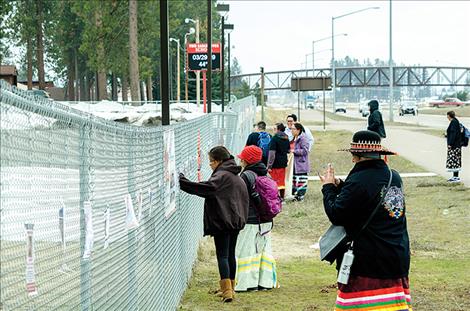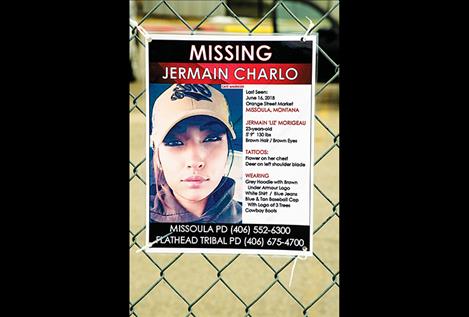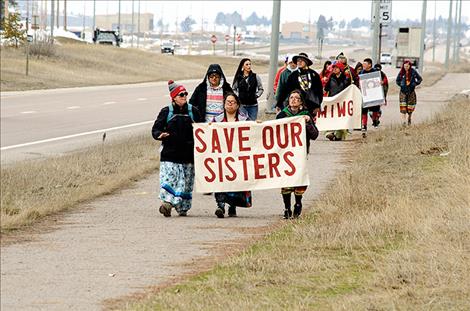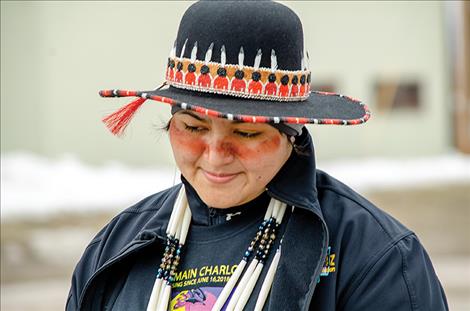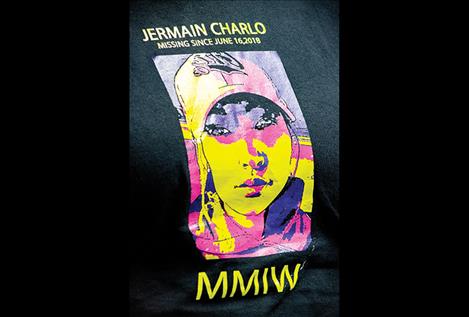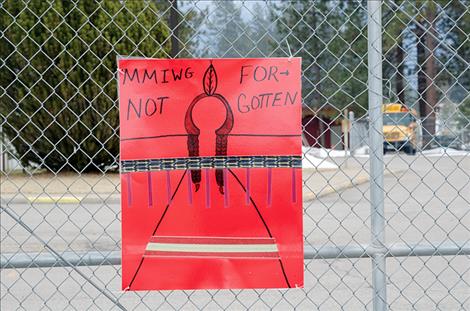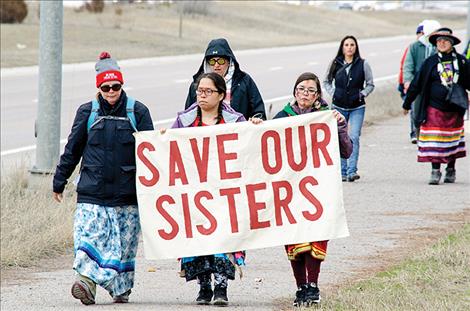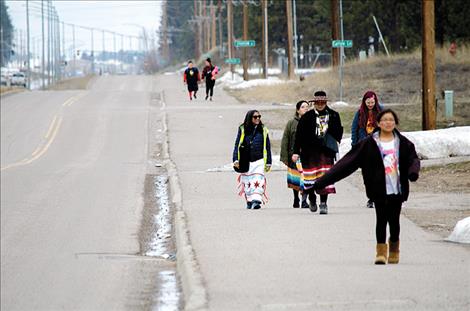MMIW remembered during 80-mile walk
Hey savvy news reader! Thanks for choosing local.
You are now reading
2 of 3 free articles.
For the third time, Marita Growing Thunder walked across the Flathead Indian Reservation with a group of supporters carrying signs saying “save our sisters” to bring awareness to the issue of Missing and Murdered Indigenous Women (MMIW).
“Hope is created by the fact that we are still here,” she said. “We are still able to do this walk, and we are creating a sense of unity for people who are suffering from historical trauma.”
Each year, the walk has kept to a similar routine – starting at the north end of the Flathead Indian Reservation in Rollins and ending at the south side in Evaro with 80 miles in between.
Growing Thunder started the first walk when she was a senior at Polson High School. She wore different traditional-style Native American dresses to school that year to bring attention to the issue. She is now a sophomore at the University of Montana and has continued to work for her cause.
The walk started on Thursday, March 28, and ended on Sunday. Dozens of people joined the walk at various times during the four-day trek. Kristin Burke traveled from California to attend the walk again this year. Growing Thunder said the walk gains more support each year.
On average, a few people usually express their disapproval. This year a person drove by holding out a middle finger. Growing Thunder said the positive outweighs the negative. She said a continuous flow of supportive honking from vehicles could be heard as they walked along U.S. Highway 93.
For all the similarities to years past, Growing Thunder noticed something a little different about this year’s walk: “A lot more families are getting involved.” Mothers walked with children to support the cause and families walked for their children. One of the families walked for Jermain Charlo of Dixon. She was reported missing in June of 2018. Her family members and friends took turns holding up a poster with Jermain’s photo as they walked. This year’s walk was dedicated to her.
Claire Charlo, her cousin, said it’s been almost a year since the family last heard from Jermain. She said people continue to call in tips concerning the case. “It’s heartbreaking that she isn’t home yet,” Claire said.
Ivy MacDonald from Browning has become an advocate for indigenous rights and walked for MMIW and her cousin Ashley Loring HeavyRunner who disappeared in June 2017 from the Blackfeet Reservation.
MacDonald said indigenous women and girls who are missing or murdered aren’t being found for a number of reasons in her opinion. “It’s a lack of resources, systemic racism, jurisdiction. I could go on and on about the reasons.” She wanted to focus more on the actions being taken to bring awareness to the issue. “We’ve had to create our own justice by walking and going to the Capital to be heard,” she said. “We have to do something.”
There is a lack of data for the exact rate MMIW across the United States. The National Institute of Justice reported that four in five American Indian and Alaska Native adults have experienced some form of violence in their lifetime.
During the walk, Growing Thunder said men are also impacted. The group of about a dozen walkers stopped in Pablo to remember Aiden Michael Finley, 20, of Polson, who was killed during a hit-and-run incident on Dec. 8, 2018. His mom, Tricia Finley, was at the walk and said there hasn’t been any new information about the case.
At Two Eagle River School, the group took a moment to look at photos of missing women lining the fence from across the United States. TERS history teacher Jaimie Stevenson walked with the group. She said the art students at the school did the work to display the photos. The students also designed the t-shirts worn by walkers with a print of Jermain Charlo’s image on the front. About 20 TERS students joined the walk on the first day.
Growing Thunder said people have told her that walking isn’t enough to solve the issue. She said she believes it brings people together, it gets them talking and it makes people aware of the issue. She said trauma and loss aren’t things people “just get over” and the physical act of walking and talking with other people along the journey is healing.















